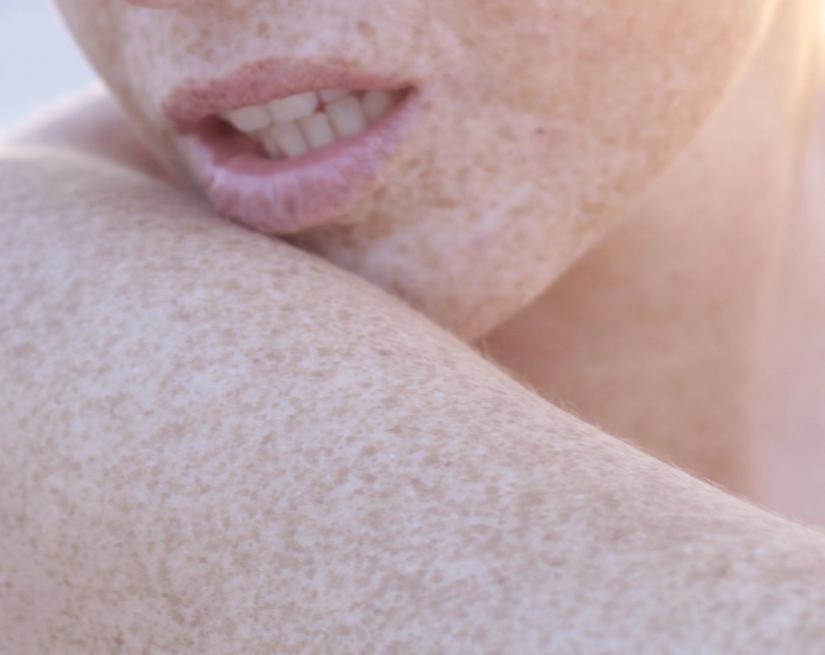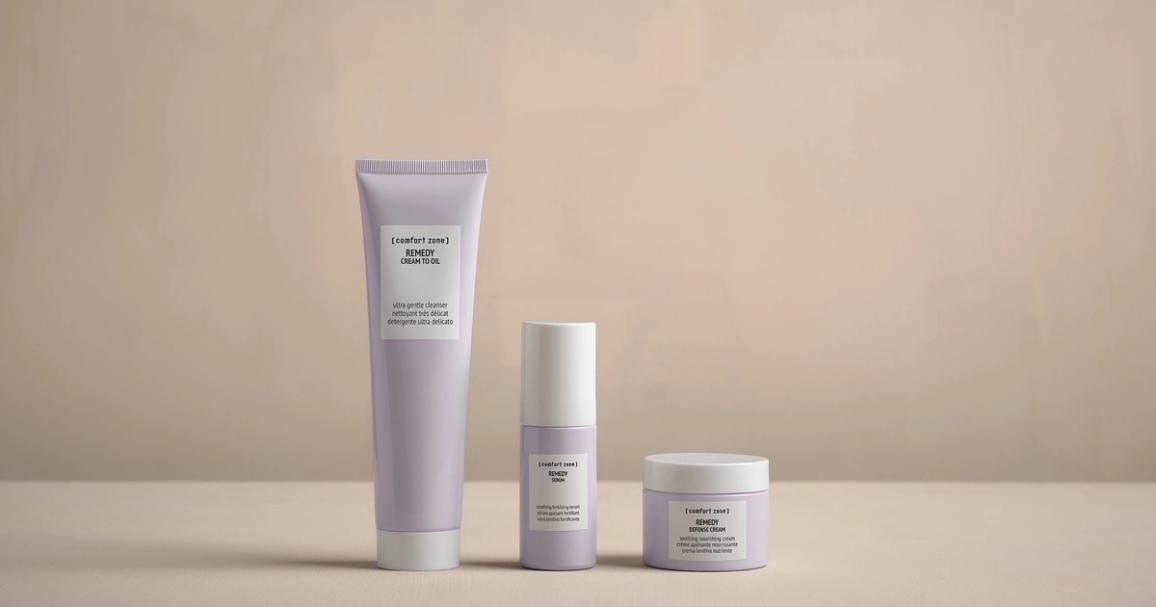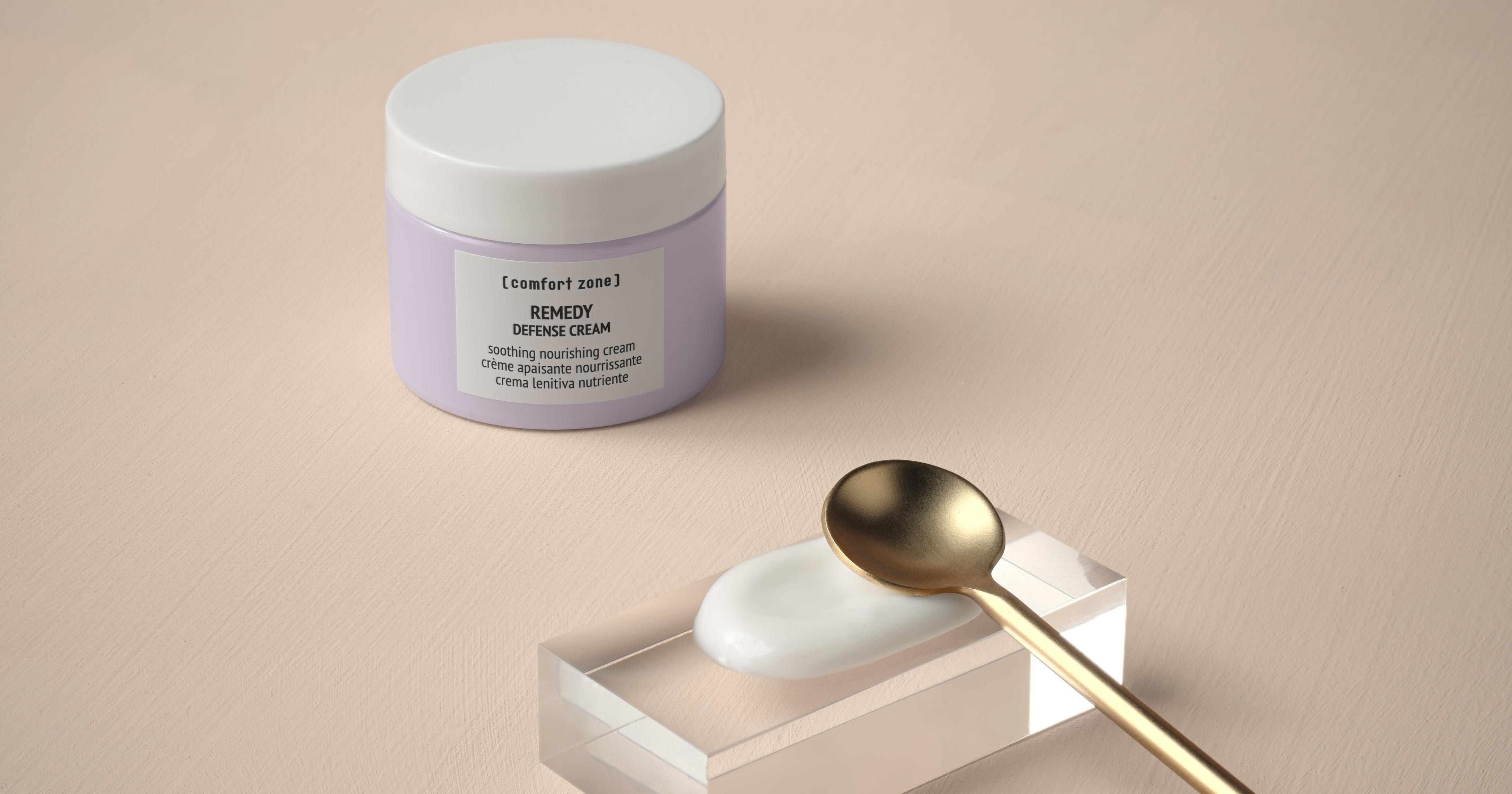REMEDY CREAM TO OIL
Ultra gentle cleanser
skin care
Eve Mérinville | Corporate RD Excellence & SC RD and Innovation Director
10 min de lecture

Caring for delicate skin can be challenging, especially when distinguishing between sensitive and sensitized skin. While these conditions share similar symptoms, they have different causes. Sensitive skin naturally reacts abnormally to typically tolerated substances, whereas sensitized skin develops intolerances or allergies due to external factors like harsh cosmetics or treatments. Even resilient skin can become sensitized over time. Despite their differences, both conditions require a gentle and consistent skincare routine to restore balance and improve skin health. In this blog, we’ll explore how to identify, manage, and care for sensitive and sensitized skin effectively.
Is your skin easily irritated—even when you haven’t applied anything that could trigger discomfort? If you experience tingling when using your beauty routine products, discomfort when touching your face, or a prickling sensation from cold and wind, it’s very likely that your skin condition is sensitive.
Skin sensitivity is caused by an imbalance in the skin barrier. This barrier is the skin’s first line of defense, keeping moisture in and irritants out. When compromised, it loses its ability to protect effectively, leaving the skin more vulnerable to external and internal stressors. This also leads to water loss and, consequently, dehydration. Lack of hydration is one of the most distinctive characteristics of sensitive skin.
Did you know that sensitive skin and sensitized skin are not synonyms for the same skin reaction? That’s right, they are two distinct skin conditions.
Sensitive skin is a common skin type that experiences an abnormal and subclinical sensory response to substances normally well tolerated by other skin types. This condition is something you are born with and is closely linked to genetics.
Sensitized skin, on the other hand, is a temporary skin condition that can be identified by heightened sensitivity and negative reactions to certain cosmetics, medications, or treatments. It can affect any skin type, including the most delicate.
Sensitization can arise from repeated exposure to aggressive ingredients, such as chemical and physical exfoliants, or from undergoing invasive and continuous aesthetic procedures like ablative laser treatments. In both scenarios, early warning signs like mild tingling or redness are often ignored. If left unaddressed, these minor symptoms can evolve into full-blown skin sensitization over time. External factors, such as excessive sun exposure and environmental pollution, can also worsen the condition.
Although they are different conditions, sensitive skin and sensitized skin share the same symptoms. These primarily include dehydration, redness, and tingling.
If you suspect you have sensitive skin, you most likely experience several—if not all—of these seven symptoms. Recognizing the following signs is the first step in adopting the best care and management strategies for both sensitive and sensitized skin.
Choosing cosmetic and skincare products is not always easy, especially if you're worried about having a skin condition like sensitive or sensitized skin. For this reason, you must understand all that these skin conditions entail. Equipping yourself with this knowledge will allow you to select products that truly care for your skin—products that contain ingredients and formulas designed to address the unique concerns of delicate skin.

The skincare routine for sensitive and sensitized skin is the same because, even though sensitized skin is not naturally fragile, it becomes so over time and must be treated with the same level of care. This means choosing gentle cosmetics and avoiding overly aggressive treatments or ingredients.
Establishing and maintaining a proper skincare routine for sensitive and sensitized skin will allow you to improve various aspects of either condition. Ideal steps include:
A good skincare routine starts with cleansing, but choosing the right cleanser among the many options available can be challenging. A helpful tip is to opt for oil-based products rather than foaming or gel cleansers, as they tend to be gentler due to their lower surfactant content (well-known cleansing agents). Cleansers with a high lipophilic component are also highly recommended, as they remove impurities through lipid affinity while respecting the skin’s hydrolipidic film.
While cleansing, avoid being overly aggressive as this could damage the lipid and protein structure of the stratum corneum (the outermost layer of the skin). This type of harm can lead to increased skin permeability to potentially irritating factors, reduced defense against chemical and bacterial aggressions, and—most notably—increased transepidermal water loss (TEWL) which would decrease skin hydration.
Many people with sensitive skin attempt to cleanse by only using water—no cleanser. This homemade strategy was developed as an attempt to reduce skin reactivity, but unfortunately, it offers no real benefits.
Water alone is not readily absorbed by the skin and can actually have a lipid-stripping effect on the skin barrier. Moreover, it is not sufficient to effectively remove impurities and makeup from the skin. Not to mention, leaving these on your skin can worsen skin conditions.
Sensitive skin, by definition, is generally dry or very dry. For this reason, a great second step in a skincare routine for sensitive or sensitized skin is to choose a serum or cream with a good hydrating formula.
This product should be applied immediately after cleansing. It is essential for restoring the integrity of the stratum corneum, improving skin hydration, and providing instant relief. When selecting a serum or cream, opt for one that is highly nourishing and reparative. Avoid occlusive formulations (products that form a thick layer on the skin, like a seal, which can sometimes trap heat and irritants), as they may lead to redness.
Sensitive and sensitized skin are both particularly vulnerable to environmental factors—including UV rays—which can worsen these conditions. Therefore, an effective final step is to protect the skin by applying (and reapplying) an appropriate SPF sunscreen, wearing clothing that provides a physical barrier, and adopting strategies to help cool the skin. Each of these actions will help prevent redness caused by excessive vasodilation in response to heat and UV exposure.
In principle, all cosmetics aim to preserve skin physiology and barrier integrity. This is even more crucial for products formulated for sensitive skin. Products designed for sensitive skin and sensitized skin have specific characteristics that help support and protect against the weaknesses caused by these conditions.
These products are often fragrance-free and contain carefully selected preservatives. When choosing the ones you’d like to use, check if the product has been dermatologically tested on sensitive skin. Please note that a product to be “dermatologically tested” isn’t enough—it should explicitly state that testing was conducted on sensitive skin, as its reactions differ from normal skin.
Comfort Zone is dedicated to developing innovative formulations that support the skin barriers of all skin types—including sensitive and sensitized skin. This is achieved in our original line, Remedy.
The formulas in our Remedy skincare line not only restore the skin’s physical barrier and reduce the permeabilityof the stratum corneum—they also support the living barrier, the skin microbiota. This is essential, as the microbiota helps regulate many physiological responses, providing a crucial contribution to its overall well-being.
Remedy products combine the power of a prebiotic to strengthen the skin microbiota with plant extracts that soothe itching and redness, all blended with precious Marula oil to nourish and support the skin barrier.
The formulations also offer a pleasant sensory experience, thanks to gratifying textures designed to meet the needs of different seasons. The benefits of the comfort zone Remedy line are tangible: increased hydration and clinically proven relief from tingling and redness.
Unfortunately, not all of the "hero" ingredients you read and hear about from various skincare brands are suitable for every skin type. Therefore, deeply understanding your skin type and condition is the first and most important step in building an effective skincare routine. With this knowledge, you can choose the most beneficial products and avoid a beauty routine that worsens your skin’s appearance.
As a general tip for sensitive or sensitized skin: Always choose gentle formulas that support your skin’s natural barrier. Consistency with the right products, along with professional treatments like the Remedy Facial, will do the rest. t beneficial products and avoid a beauty routine that worsens your skin’s appearance.
When you’re building a skincare routine, remember to remain patient as this process requires intentionality—taking shortcuts can often lead to worsened or prolonged issues. Above all, trust the advice of experts who can provide personalized and targeted recommendations. This way, you’ll end up with a solid and well-thought-out skincare routine that becomes a trustworthy companion throughout your life.

Ultra gentle cleanser
Soothing fortifying serum
Soothing nourishing cream
Anti-spot protection